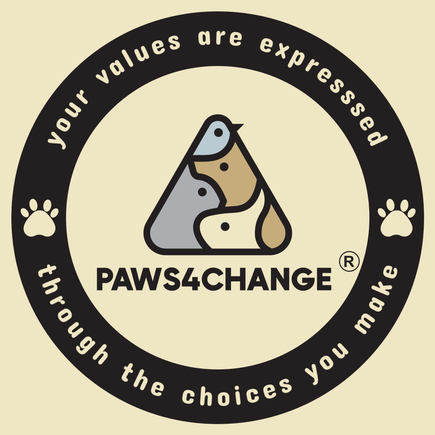|
As we reach the end of another year I am taking stock, as do many people. I don't make resolutions for the New Year, per se. When it comes to my animal welfare advocacy, I take an inventory of sorts as I look back at the good, bad, tragic, triumphant, unfortunate and avoidable. As we head into 2023, I have decided to do my best to help those advocates who are willing to help themselves. I am contacted daily by people who want help. Some want to know to report a puppy mill. Some need help placing an animal or finding a lost pet. Some are not sure what to do with a situation about animal abuse or neglect. Some have an issue in their area with someone trying to eradicate community cats and they want to stop that. Some seek help related to No Kill animal shelter advocacy. You get the idea. The subjects vary greatly. I can often provide people help quickly by referring them to a page on my website, to a blog I've written, to another organization or to a subject matter expert. I am happy to help when I can and within the scope of my knowledge base. I often engage with fellow advocates like me who are looking to affect change in their own areas related to the operation of the tax-funded animal shelter. I do not provide consulting services and I do not do boots on the ground work in those places. I work a full-time job in the legal field, manage three websites, lead a No Kill political advocacy group in my area and participate in a No Kill coalition of fellow advocates who try to help other advocates across the country (we are unfunded and are all active in advocacy in our own communities). I have a family which is my priority, as it should be for all of us. I know some situations are just beyond my ability to help anyone. I cannot help someone fix all that is broken with animal shelter systems in large cities in which millions of dollars are in play like Los Angeles, Chicago, Atlanta, New York, Houston or Miami. When shelters in huge cities are regressive and there are likely to be contract issues, there can numerous layers to that dysfunction which has often been calcified over the years. When we are talking about a city or county level for small to medium sized municipalities, I can ordinarily help with that. I have engaged with advocates in numerous states and often engage with elected officials in those states to help them understand what the phrase "No Kill" means, to learn about the No Kill Equation and to share what has worked well (and has not worked well) in my area. At the heart of every conversation, be it by telephone, email or video chat is education. Just like I had to educate myself in order to become a more effective advocate, people who are seeking change in their own areas must advance their own education in order to be the change they seek where they live. There is no shortcut to change and we all have to pay the price by spending time to become informed on the subjects about which we advocate. With very few exceptions, there is no person or organization that will come to your community and fix it for you. There are large organizations that promote ideas, blog, hold seminars and have state representatives who perform a variety of functions. They do not ordinarily address issues in specific cities or counties on a large scale. There are also consulting groups which provide help related to animal shelter reform on a paid basis, not all of which are created equal. For the most part, change begins with all of us in our own backyards. I was recently reminded of a blog from 2011 written by a fellow advocate in which she made a reference to a famous line from a sitcom from years back. Shirley Marsh of Yes Biscuit wrote a wonderful blog called "I Can't Save Every Pet at Your Local Shelter, But I Know Who Can." I often call this the "no soup" blog. I've shared it countless times and Shirley was gracious enough to allow me to include the following quote in my book: In reality, [animal shelter reform] takes a group of dedicated animal advocates willing to stir things up in their own community by challenging the status quo and refusing to accept killing as a means of population control. There are consequences to such actions: old friendships may be broken, egos may be bruised, glass houses may be shattered. This ain’t no fairy tale. It’s hard work, which will be met with resistance by some. You will no longer be able to ride the I Love Everybody and Everybody Loves Me bus. You will not be nominated for homecoming queen. No soup for you. Like all things in life, working to end the killing in your community is a choice you must make for yourself. You can choose to carry on with the ‘save a few and kill the rest’ status quo. You’ll get to keep all your Facebook friends and play Farmville with them in between posting pets from kill lists. Or you can choose to reject the idea of needless killing as justifiable in any way. You’ll make some people feel uncomfortable, and they will resent you for it. But you’ll have the opportunity to educate and learn from others who are on the same path. No longer will you feel an awkward compulsion to defend those who kill friendly pets in shelters while simultaneously advocating to save shelter pets. You will have the clarity of mind that comes from knowing where you stand.” Shirley used Seinfeld. I use The Wizard of Oz. If you want to get to the Land of Oz (create a No Kill community where you live), I can do my best impression of a member of the Lollipop Guild as I grimace and kick my feet (to show my conviction) and encourage you to "follow the yellow brick road" (by following the programs and services of the No Kill Equation). I can explain the journey in general terms and wish you the best, warning you to BOLO for that green witch and her flying monkeys (the opposition to animal shelter reform) hoping you reach Oz and find all you seek. But I cannot make the journey for you. That task is yours and yours alone. Each community is different. If a person or people in a particular community want change, they know best what resources exist in the community as well as what challenges exist there. Only people who live in the community can become truly politically active in that community to seek shelter reform by engaging with their own elected officials, with community stakeholders and the with the animal loving public. The genius of the No Kill Equation is that it can be molded and shaped to fit any community. By the people who live and work there. If you contact me in 2023 seeking help to make yours a No Kill community, I will do my best to help you provided you are willing to help yourself. I will ask you watch the 27-minute video you see below about the No Kill Equation. I will implore you to read Nathan Winograd's book, "Redemption: The Myth of Pet Overpopulation and the No Kill Revolution in America." I will ask you to consider reading my book if I think it will help you. I may refer you to pamphlets available on the No Kill Advocacy Center website to read to further your education. If you are willing to do those things, you will be well on your way to being educated enough on the subject to talk about it, educate others about it and persuade them that your community can, and should, become a No Kill community. I truly believe a time will come when all tax-funded animal shelters are No Kill shelters. How quickly we get there is up to all of us and how well we educate ourselves and those around us. As is the case with many of my blogs, local events prompted this one. I talk to some great folks across the country doing all they call to learn and to affect change. I had the misfortune of trying to help someone recently whose issues were well beyond by ability to help at all. I was not able to provide the guidance or help that person expected. Rather than thank me and move on, she chose to harass me and threaten me. At one point she created a recording in which she said she wanted "something meaningful." She did not want to be told to read another pamphlet or write a letter in the age of technology. She thought I had single-handedly brought reform to the entire state of Louisiana; I've driven through Shreveport four times, but that's the extent of my exposure to the Pelican state. She also thought it was the role of Nathan Winograd to get personally involved in her community, file a Section 1983 lawsuit on her behalf and spend time fixing what is broken because she just did not have the time. It got to the point that I had to block her on Facebook and block her phone number. As unhinged as she was, I realize it may have been due to frustration. I get it. But here's the deal, as we used to say in the Army. If you ask someone for help and they cannot help you, do not then turn your rage to the person you approached for help. Move along. All our lives are too short to expend time and energy in ways that are counterproductive to our values and goals. There may be someone else you can help you, but you have to own your outrage, put in the time yourself and not expect someone else to create your own future for you.
My book about our advocacy in Huntsville, Alabama, is priced to print on Amazon (which means no money is being made). I often blog here about No Kill advocacy and philosophies and I am active on Facebook, at least for now. You are welcome to contact me. If I can help you, I will. Countless people have helped in the the last two decades of my advocacy and I know that individual folks "in the weeds" like me have to help each other whenever we can.
0 Comments
|
AuthorI am an animal welfare advocate. My goal is to help people understand some basic issues related to companion animals in America. Awareness leads to education leads to action leads to change. Archives
July 2024
Categories
All
image courtesy of Terrah Johnson
|


 RSS Feed
RSS Feed